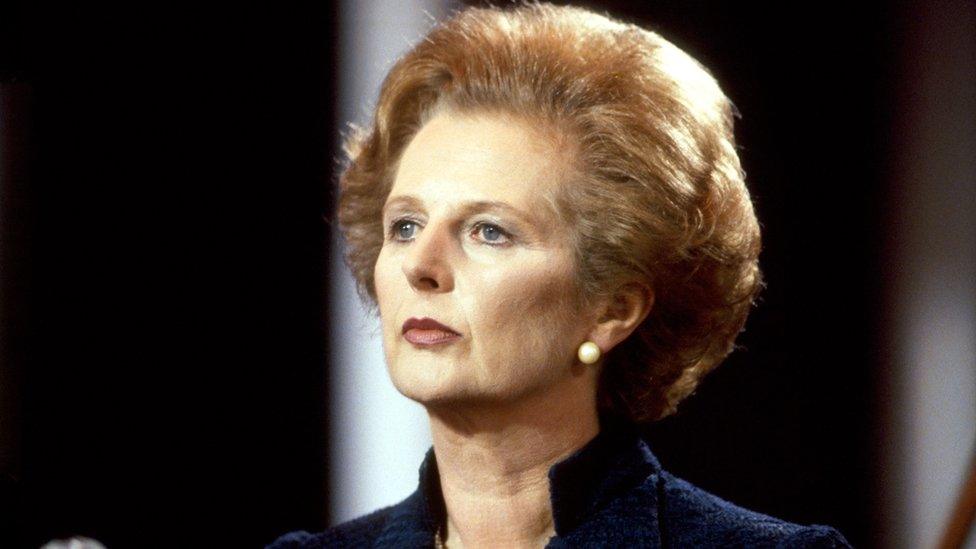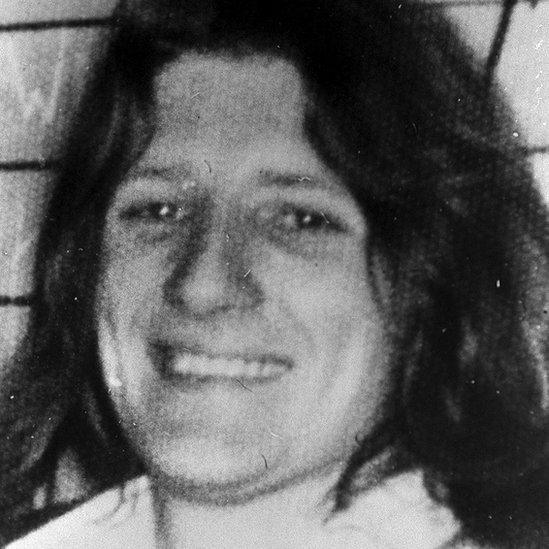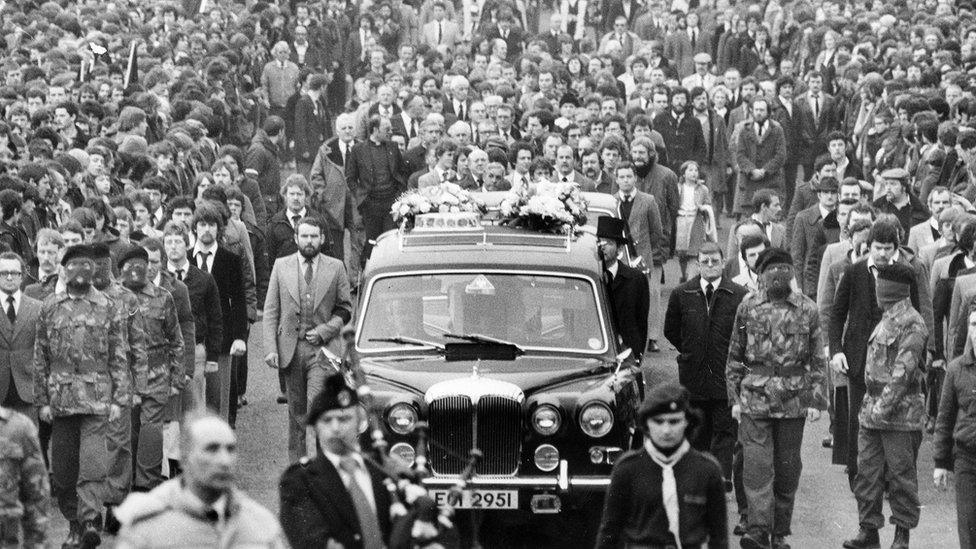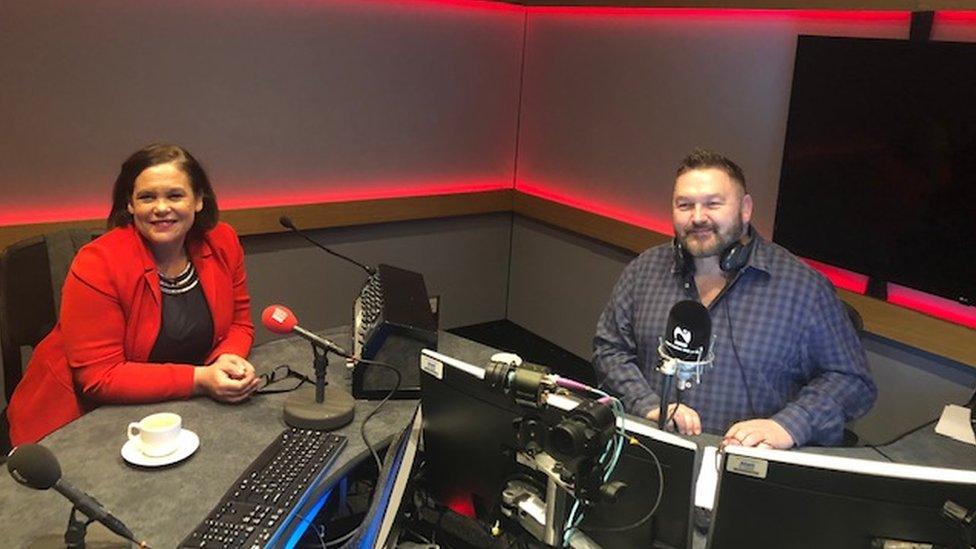Margaret Thatcher was the 'quintessential hate figure', says Mary Lou McDonald
- Published

Mary Lou McDonald said that while she would always hate Margaret Thatcher's politics, comments made on social media after her death were "most unfair".
Margaret Thatcher was the "quintessential hate figure", Sinn Féin President Mary Lou McDonald has said.
Mrs McDonald said growing up against the backdrop of the hunger strikes made her realise "there was a problem in Ireland".
As an adult, she said that while she would always hate Thatcher's politics, social media comments after her death were "most unfair".
Mrs McDonald also spoke of a growing momentum for a united Ireland.
'Crime is crime is crime'
In 1981, 10 republican inmates, including Bobby Sands, died during an IRA hunger strike over a dispute about political prisoner status in the Maze Prison.
"Growing up in Dublin, you're at a distance from the conflict," Mrs McDonald told BBC Radio Ulster's Talkback.
"But even for the most disengaged person, the Troubles were the background noise to everybody's life and everybody's childhood."

Bobby Sands was elected as MP for Fermanagh and South Tyrone in April 1981 while on hunger strike
The Sinn Féin president said she was about 12 when she thought: "There's something really badly wrong here.
"The moment that most sticks with me is the time of the hunger strikes and having those images beamed on the televisions and asking: 'What's that? Why has that happened?'"
"I remember the precise moment that my brother came and told me Bobby Sands had died, the realisation of the scale of the awfulness.
"I remember it as a set of feelings, rather than any logical, analytical position you would arrive at."
Bobby Sands was the first of the hunger strikers to die, on 5 May 1981.

Mrs Thatcher refused to grant hunger-striking prisoners like Bobby Sands, whose funeral on 7 May 1981 is pictured here
Of the then prime minister, Mrs McDonald said she was the "quintessential hate figure at that time".
"I would say almost universally by people who would describe themselves as nationalist or republican, not simply Sinn Féiners," she added.
"The malice with which she approached a situation that was hugely politically fraught, but was also hugely human, and to see the men die, one after the other."
Mrs Thatcher refused to grant the prisoners any privileges.
"Crime is crime is crime," she said at the time. "It is not political."
Childish self
"I look back on it now and I know when Margaret Thatcher then died, there was a lot of commentary on social media, which I have no doubt her family must have found terribly offensive and very, very hurtful," said Mrs McDonald.
"I remember reflecting on that, because I thought the commentary was unkind and unnecessary given the woman had passed.
"So as an adult I look back at my childish self and all of the experiences and the fact that I will always hate Thatcher's politics.
"I despise Thatcherism but as an adult you can separate.
"I felt sorry for her family when she got all of that posthumous grief on social media. That was most unfair."
Growing unity momentum
Turning to the future, Mrs McDonald said Brexit would be a "disaster for Ireland".
Asked about the possibility of a united Ireland, she said there was a "momentum that's out there and growing".

Mary Lou McDonald told William Crawley Irish unity made sense "on every level"
"It's not just Brexit, it's demographic changes, it's political changes," she said.
"The most significant thing for me is, right across the island is that increased appetite for social progress and change. You can feel it in the north, you can feel it the south.
"The big social debates in the south were passionately debated here in the north.
"I remember canvassing on one occasion in west Tyrone and bumping into canvassers from another party, that was not a nationalist party, and I noted that the the young canvassers were wearing their Repeal shirts.
"There's a generational turning of the wheel.
"Irish unity on every level makes sense."